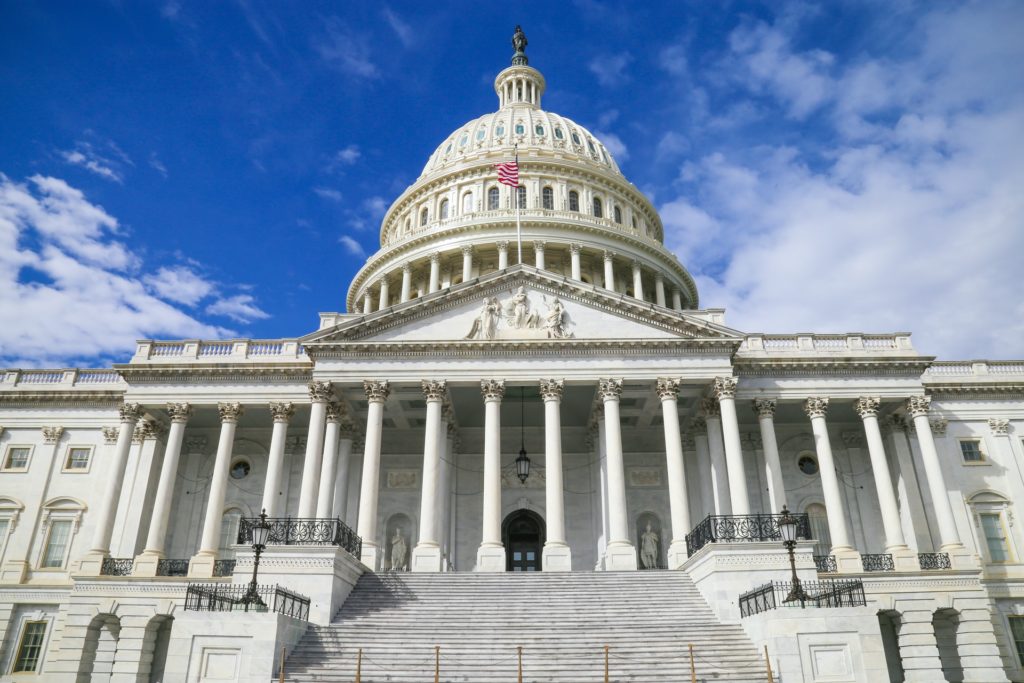
Published July 21, 2021
Republican lawmakers in the House and Senate will introduce legislation today to prohibit colleges and universities from receiving federal funding if they provide chemical-abortion drugs to students.
The Protecting Life on College Campus Act of 2021 will be rolled out later this morning by lead sponsors Senator Steve Daines (Mont.) and Representatives Mary Miller (Ill.) and Chip Roy (Texas).
According to the draft bill, a copy of which was obtained exclusively by National Review, the legislation would prohibit federal money from either directly or indirectly funding “any institution of higher education that hosts or is affiliated with any school-based service site that provides abortion drugs or abortions to students of the institution or to employees of the institution or site.”
Though it’s far less likely that a student would seek a surgical abortion at a campus health center — as opposed to chemical-abortion drugs, which are the primary method for abortions in the first twelve weeks of pregnancy — Roy’s office has confirmed that providing either chemical abortions or surgical abortions on campus would violate the law.
To remain eligible for federal funding, institutions of higher education that host a health clinic would be required to send an annual report to the Departments of Education and of Health and Human Services, “certifying that no such site provides abortion drugs or abortions” to students or employees.
Thus far, the bill has garnered the support of more than 50 cosponsors in the House and of a handful of Republican senators: Marsha Blackburn and Bill Hagerty of Tennessee, Mike Rounds of South Dakota, Marco Rubio of Florida, Ted Cruz of Texas, Roger Wicker and Cindy Hyde-Smith of Mississippi, Tom Cotton of Arkansas, and Josh Hawley of Missouri.
The GOP effort to draft this new legislation came about first and foremost as a response to a California law that requires every public university in the state to provide chemical-abortion pills to female students — or, as the law puts it, “pregnant persons.”
The California statute, first enacted in 2019, will take effect starting in 2023, spurring this response from federal lawmakers concerned that the policy might be replicated in blue states across the country. In fact, the state senator who sponsored California’s law explicitly said she hoped her bill would jump-start a nationwide movement to make chemical abortions more widely available on campus.
Over the past few years, Democratic lawmakers in at least one other state, New York, have advanced legislation to require state schools to provide chemical abortions at on-campus clinics. But as I noted in a piece at NRO when the California law was first enacted, even Democrats seem to be divided over whether it’s a prudent policy idea to compel public universities and colleges to provide abortions:
[In the fall of 2018], then-governor Jerry Brown refused to sign the legislation, using talking points similar to those that pro-life groups such as Students for Life of America used when lobbying against the bill.
“According to a study sponsored by supporters of this legislation, the average distance to abortion providers in campus communities varies from five to seven miles, not an unreasonable distance,” Brown said in a statement at the time. “Because the services required by this bill are widely available off-campus, this bill is not necessary.”
But California governor Gavin Newsom, who took office in 2019, evidently disagreed with Brown’s assessment. “As other states and the federal government go backward, restricting reproductive freedom, in California we are moving forward, expanding access and reaffirming a woman’s right to choose,” Newsom said after signing the bill. “We’re removing barriers to reproductive health, increasing access on college campuses and using technology to modernize how patients interact with providers.”
This is the new language of the Left when it comes to abortion, and Republican lawmakers backing today’s legislation are determined to prevent the abortion industry from turning abortion on college campuses into the abortion-rights movement’s issue du jour.
“For too long the abortion industry has been taking advantage of vulnerable women, and now, blue states like California are beginning to require campus clinics to provide chemical abortions on demand,” Senator Steve Daines told National Review. “These do-it-yourself abortions put young women in dangerous situations that they are oftentimes forced to deal with alone in their dorm room.”
The pro-life effort to limit chemical abortions on campus is part of a broader national debate over chemical abortion. During the COVID-19 pandemic, abortion-rights activists began fighting in court to loosen Food and Drug Administration safety standards that had required women to meet with a doctor in person before obtaining the first of two chemical-abortion drugs.
The result was a lengthy legal battle between the Trump administration and abortion providers, who claimed in their lawsuits that they were challenging the FDA safety regulations on behalf of women. But the fact is that women are put at higher risk when health and safety standards are loosened, a significant factor in pro-life concern about abortions on college campuses.
“Chemical abortions are the future the abortion issue is lobbying for, and I know that as a mother of five daughters, my girls and their peers are the most vulnerable to the chemical-abortion industry,” Representative Mary Miller told National Review. “They exploit young women by offering a ‘safe, easy, and near-painless way’ to get an abortion. The reality is: Women and girls with these drugs are left to deal with the consequences and severe potential side effects all on their own.”
According to one study, up to 7 percent of women who undergo a chemical abortion will require follow-up surgery. Another survey found that more than 3 percent of women who took at least the first of the two chemical-abortion drugs required emergency-room admission to manage complications. A recent paper in Issues in Law and Medicine catalogued FDA reports of adverse events after chemical abortion and found that “significant morbidity and mortality have occurred following the use of mifepristone as an abortifacient” over the past two decades.
“A college dorm room is no place to have a do-it-yourself abortion, and the American taxpayer should not be paying for the destruction of innocent human life on our college campuses,” Representative Chip Roy said in a statement to National Review. “But, as we already know, what the abortion industry really cares about are profits — not the welfare of mothers or the integrity of higher learning. The Protecting Life on College Campuses Act is about guarding young college women and their unborn children from the predatory abortion industry’s radical and reckless push for universal access to abortions.”
Pro-life congressmen are concerned not only about the safety of young women on campus but also about the conscience rights of pro-life taxpayers.
“American taxpayers should not be forced by Democrats to fund the abortion providers in this country directly or indirectly,” Miller said. “The Protecting Life on College Campus Act stands up for the many Americans who share a deeply held moral opposition to ending life in the womb.”
The legislation has thus far garnered the support of several major national pro-life lobbying groups, including the political-action arms for the March for Life, Susan B. Anthony List, Students for Life, the National Right to Life Committee, and the Heritage Foundation.
Alexandra DeSanctis is a Visiting Fellow at the Ethics and Public Policy Center.








